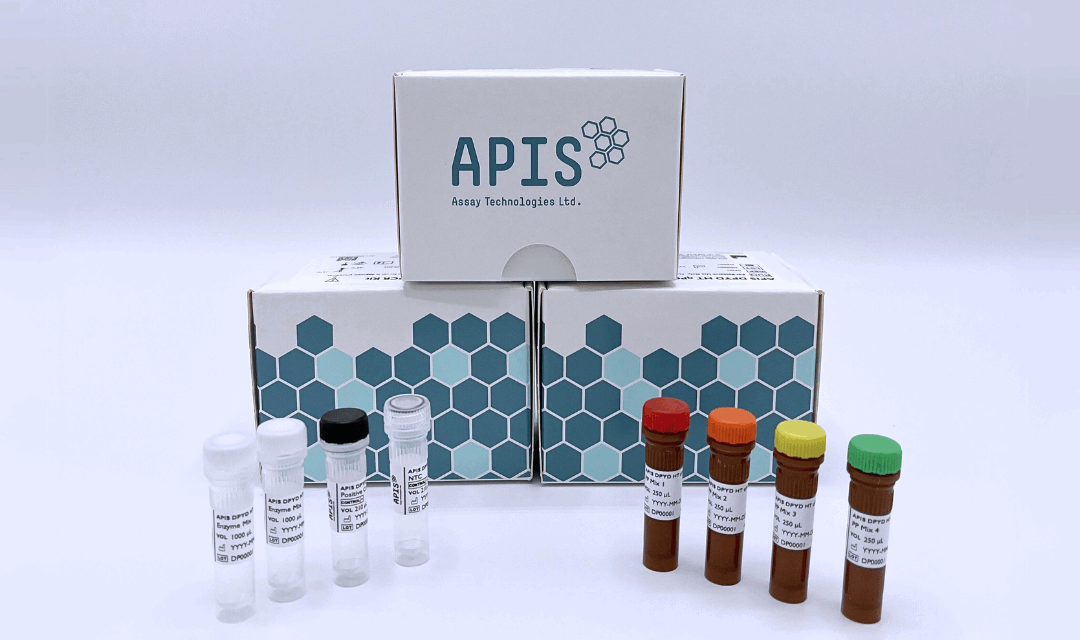The qPCR-based test detects variants that increase risk of severe fluoropyrimidine chemotherapy toxicity.
The US Food and Drug Administration (FDA) has granted Breakthrough Device Designation to APIS Assay Technologies’ DPYD HT qPCR Kit, a molecular genotyping assay designed to identify patients at risk of severe toxicity from fluoropyrimidine-based chemotherapy drugs.
The designation recognizes medical devices with potential to provide more effective diagnosis or treatment of life-threatening or irreversibly debilitating conditions. The FDA’s Center for Devices and Radiological Health granted the designation based on the assay’s potential to address an unmet medical need in pre-treatment identification of patients at risk.
Fluoropyrimidines, including 5-fluorouracil (5-FU) and capecitabine, are widely used to treat various solid tumors. However, patients carrying certain DPYD gene variants face increased risk of severe or life-threatening toxicity from these chemotherapeutic agents.
Detecting Seven Key Variants
The APIS DPYD HT qPCR Kit detects all seven Tier 1 DPYD variants recommended for testing by the Association of Molecular Pathology (AMP) using a quantitative PCR-based approach. The assay generates results directly from whole blood samples, minimizing sample preparation requirements.
The test has been designed for broad population coverage to ensure accurate genotyping across diverse ancestries. An abstract outlining the assay development will be presented at the AMP 2025 Annual Meeting in Boston in November.
Once approved, the test is expected to enable timely dosing decisions that could reduce severe fluoropyrimidine-related adverse events, improve patient outcomes, and lower healthcare costs associated with toxicity management.
“Receiving the FDA Breakthrough Device Designation is a major milestone for APIS and for patients receiving fluoropyrimidine-based chemotherapy,” says Dr Ian Kavanagh, chief executive officer of APIS Assay Technologies, in a release. “Our mission is to make precision oncology accessible and actionable. This designation recognizes the potential of our DPYD test to empower clinicians with the information they need—quickly and accurately—to prevent avoidable toxicity and improve cancer care globally.”
Development Support and Next Steps
Part of the test development was supported by Innovate UK under the DEVOTE programme to advance APIS’ pharmacogenetic assay portfolio and support ongoing clinical validation studies.
The Manchester, UK-based company is finalizing development and advancing toward commercial launch while exploring strategic collaborations and investor partnerships to maximize market potential and accelerate adoption.
Photo caption: DPYD HT qPCR kit
Photo credit: APIS Assay Technologies





